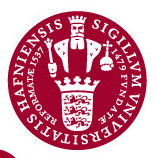Diabetes - A Global Challenge - Treatment of Hyperglycaemia with T2D Patients Part 3 (16:05)
(View Complete Item Description)This presentation focuses on the treatment of hyperglycaemia with type 2 diabetes patients. We’ll provide an introduction to exenatide, liraglutide, GLP-1 receptor antagonist, combination therapy, DPP-4 inhibitor, pancreatic safety of incretin-based drugs, SGLT-2 inhibitor and glucose absorption. Course responsible: Associate Professor Signe Sørensen Torekov, MD Nicolai Wewer Albrechtsen & Professor Jens Juul Holst
Material Type: Lecture




















